As we enter the opening soon of nominations for the 2023 Open Awards for Excellence this episode ought to inspire you with our conversation recorded way back in December with Ewan McAndrew, last year’s winner of an Individual Award in the Support Specialist category.
Ewan’s impact on students, faculty, and the wider community as a Wikimedian in Residence based at the University of Edinburgh is deep and wide, a challenge to cover in just an hour of conversation. Starting in the shadow of his workplace adjacent to the iconic Castle, we hear of Ewan’s spreading both the joy of Wikipedia and the potential of helping countless people become active contributors to the greatest body of knowledge we have today.
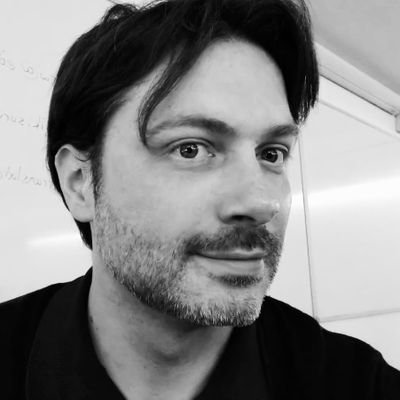
Listen in as Ewan clearly demonstrates the value and that the ways into this act are something he has repeatedly shown people can do in one sitting. Through this conversation, the awarding to him in the support specialist category for the OEAwards may only partially indicate his impact as a Wikimedian in Residence.
Podcast: Play in new window | Download
References and Quotes for Episode 55
Note: In the spirit of Ewan’s mention of “that joy of going down the rabbit hole of clicking through all the wiki links to find out about opening up obscure topics to a general lay audience” we maybe added too many links from this conversation!
It is a strange kind of excitement. It’s weird how people love and know Wikipedia so well, but they don’t know what’s under the bonnet. They don’t know how that information gets there. They also think that there’s some sort of elves that just, overnight magic, a page together, and that this work happens organically, like Santa’s workshop every year. There’s something going on there that they don’t know how it happens, but they expect the information to be there. They also don’t maybe necessarily question or understand the nature of how a statement got that citation at the end of it, that you should be clicking on the citation to find out more, to make sure it’s a verifiable statement. It’s when you start saying, look, this is something you can edit and here’s how.
Here’s the sort of easy route in. Suddenly their eyes light up a bit , “Oh, I can actually contribute here. It looks reasonably easy. How can I, how can I help? “And it’s just saying, look, you know, start small or start big, fifty words or more, and you’ve got something you can publish as long as you’ve got those citations and cite what you write.
Ewan McAndrew
- 2022 OE Award for Excellence in Support Specialist Category: Ewan McAndrew (OEGlobal)
- Username EMcAndrew (Wikipedia)
- Username “Stinglehammer” (Wikipedia)
- Aberdeenshire (Wikipedia)
- Newburgh (Wikipedia)
- Wikimedian in Residence (University of Edinburgh)
- University of Edinburgh Wikipedian in Residence (Wikipedia)
- Wikimedia in Education Case Studies (University of Edinburgh)
- Wikimedian in Residence Channel (University of Edinburgh, Media Hopper videos)
- Wikipedian in Residence Videos (YouTube Channel)
- Down the Rabbit hole of Knowledge (Wikipedia Quick facts, University of Edinburgh)
- Reflections on a Wikipedia assignment – Reproductive Medicine (University of Edinburgh)
- Wikidata in the Classroom – Data Literacy for the next generation (University of Edinburgh)
- Wikipedian in Residence (Wikipedia)
- Liam Wyatt (First Wikimedia in Residence–username Wittylama is an anagram)!
- Martin Poulter (Wikipedian in Residence)
They can see that their work is published and has some lasting good. There was one student in particular, Áine Kavanagh ,who I keep going back to because she talks about how the work that she did in reproductive medicine hadn’t really been relevant outside of lectures and exams.
And she was taking that knowledge that hadn’t seemed terribly relevant and applying it in a real world application of teaching and learning, taking her scholarship and creating this page about high serious grade carcinoma, one of the most deadly and most common forms of ovarian cancer. And it didn’t have a page on Wikipedia. She was plugging a knowledge gap online, using her research and credible open access material, at least 60 citations in that article, and creating her own diagrams because she couldn’t find any copyright free ones. So she had to create her own diagrams in Photoshop to help explain this high serious grade carcinoma to a lay audience.
That page has been viewed 150,000 times since she published it. So that’s impact right there. And she still talks about it. She’s left the university now and she still came back to talk with us when we did a podcast last year. She still felt really proud and enthused about the work she’d done on Wikipedia as part of that course.
Ewan McAndrew on the impact of a student experience adding knowledge to WikiPedia
- Wikipedia in the Classroom – Interview with Aine Kavanagh (University of Edinburgh)
- High-grade serous carcinoma (Wikipedia Article started by Aine Kavanagh)
- Improving science communication with… Wikipedia? (interview Aine Kavanagh, University of Edinburgh Teaching Matters Blog)
- Hannah Rothmann, 2021 OE Award for Excellence (University of Edinburgh student)
- Wikipedia How to Videos (YouTube playlist)
- Edinburgh Award (University of Edinburgh)
- “Digital Volunteering with Wikipedia” – the Edinburgh Award (student videos and project links, University of Edinburgh)
What was really great is that we already had this rich data set, which looked at all the historical records in Scotland of accused witches. And weirdly, Scotland did document quite a lot of what happened, and they just put it in this Microsoft Access database they completed in about 2003. It remained relatively static– there’s 30 tables, 300 columns of information, a really rich data set.
There are lots of gaps in the data because it’s historical data. One thing we do seem to have for most of the accused witches in here is at least some idea of their place of residence that seems to have been noted.
If we could just get a student with a geographic background, we could get them to sit down with some old georeferenced maps from the National Library of Scotland, take the names of these places and see if there are coordinates we could get them approximately or exactly right. It wasn’t always easy, but it was a lot of detective work and we managed to get somewhere in the region of 800 place names geolocated and that allowed us to create maps.
That seemed to bring home to people the sort of extent of the witchcraft panics in Scotland. But also it localized things and seemed to bring home that “Oh, there was like three accused just down the road from me,” and you’d want to read a bit more and wondered why there was no sort of memorial to them.
Ewan McAndrew on the Accused Witches Project
- Survey of Scottish Witchcraft Database (original database, University of Edinburgh)
- Witches of Scotland (Locations mapped from Wikidata, University of Edinburgh)
- Mapping Scotland’s accused witches through Open Data (Heritage Fund)
- Some witchy history and a very smart woman in data science (Anne-Marie Scott blog)
- Witches of Scotland (Public campaign)
- Remembering the Accused Witches of Scotland (RAWS, Scottish Charitable Incorporated Organisation)
There are about a dozen open knowledge projects supported by Wikimedia. My role is Wikimedian in Residence, so I’m supposed to facilitate engagement with all of these projects.
…
It’s that opening up of all of the different platforms and being able to wiki link between them in a really useful way that I think gives the Wiki universe an edge over other platforms.
Ewan McAndrew on Wikimedia Knowledge Projects
- Wikimedia Knowledge Projects
- Wikisource
- Robert Louis Stevenson (Wikisource)
- A Lodging for the Night (Wikisource)
- Wikivoyage
- Traveler’s Pub (Wikivoyage)
- Wikiquote
- SheSaid Campaign (Wikiquote)
- Wikisource
- Frederick Bower (Google search results reveals Wikidata infobox)
- Wikimedia Chapters (Find support)
- Wikipedia Essentials Module (Wikimedia Labs)
- Wikipedia Day (wikipedia’s birthday)
- 1Lib1Ref (Wikipedia)
- Citation Hunt Tool (Wikitech Toolforge)
I run online workshops every month. Anyone’s welcome to attend. I try and teach people within forty-five minutes to an hour how to edit. And then if they want to, they can stay on for the rest of the afternoon, and I will suggest pages that they can create related to a notable woman that doesn’t have a page on Wikipedia.
And all we need, like I say, is fifty to a hundred words. Cite what you write. Write in your own words. And so fifty to one hundred words backed up by three or more reliable published secondary sources, and you’ve got something you can publish by the end of the afternoon. So I run those sessions on the last Friday of every month, both online and in the library at the University.
Ewan McAndrew on monthly Wikipedia workshops (in person and online)
- University of Edinburgh/Events and Workshops/Women in Red (last Friday of every month, 1:00-5:00PM Edinburgh Time, convert to local time)
- Women in Red Project (Wikipedia)
- How to edit Wikipedia – a 1 hour tutorial (University of Edinburgh)
Our open licensed music for this episode is a track called Wiki Leads by M33 Project licensed under a Creative Commons Attribution-NonCommercial 4.0 International License. Like most of our intro music, it is from the Free Music Archive (see our full FMA playlist).
The introduction was created with the OEG Voices Mixer featuring voices of Maren D, Rowena B, Robert S, Gino F, Józefa F, Ajita D, Catherine C, Alex E, Lena P, Clint L, Judith S, Ewan M, and Cynthia O — Ewan contributed his voice during our recording session (learn how to add your voice to the mix).
This was another episode we used Descript for transcribing and editing audio that has greatly enhanced our ability to edit and transcribe our show.
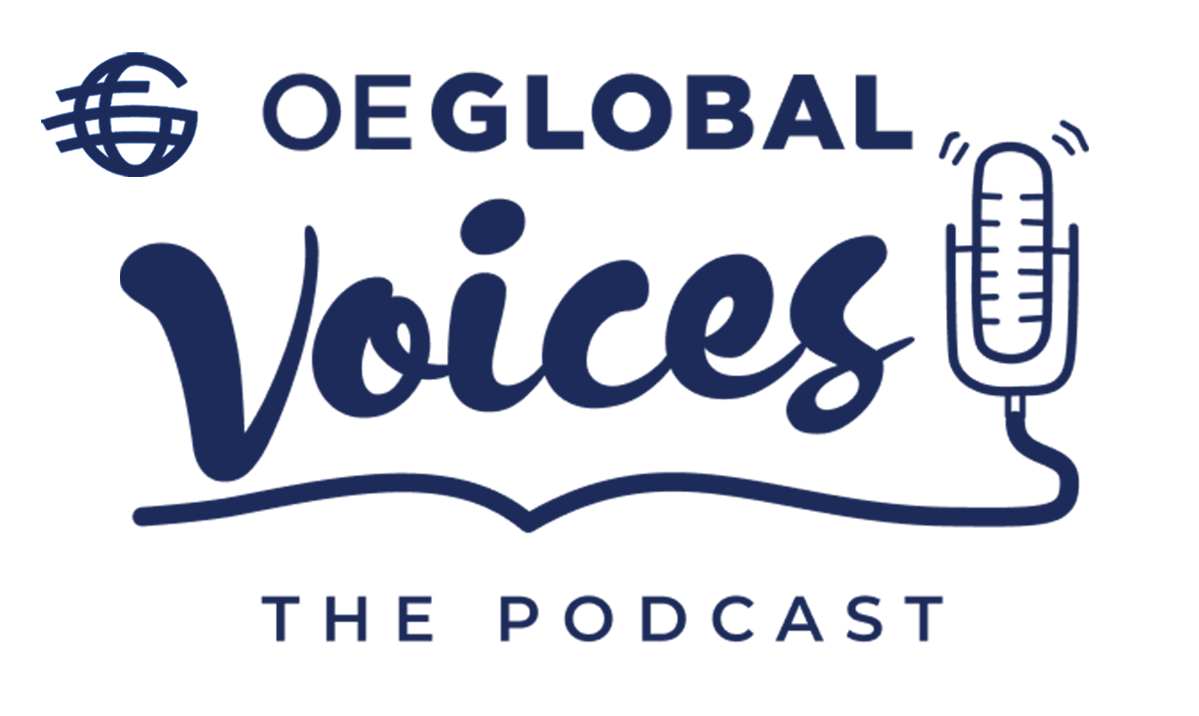
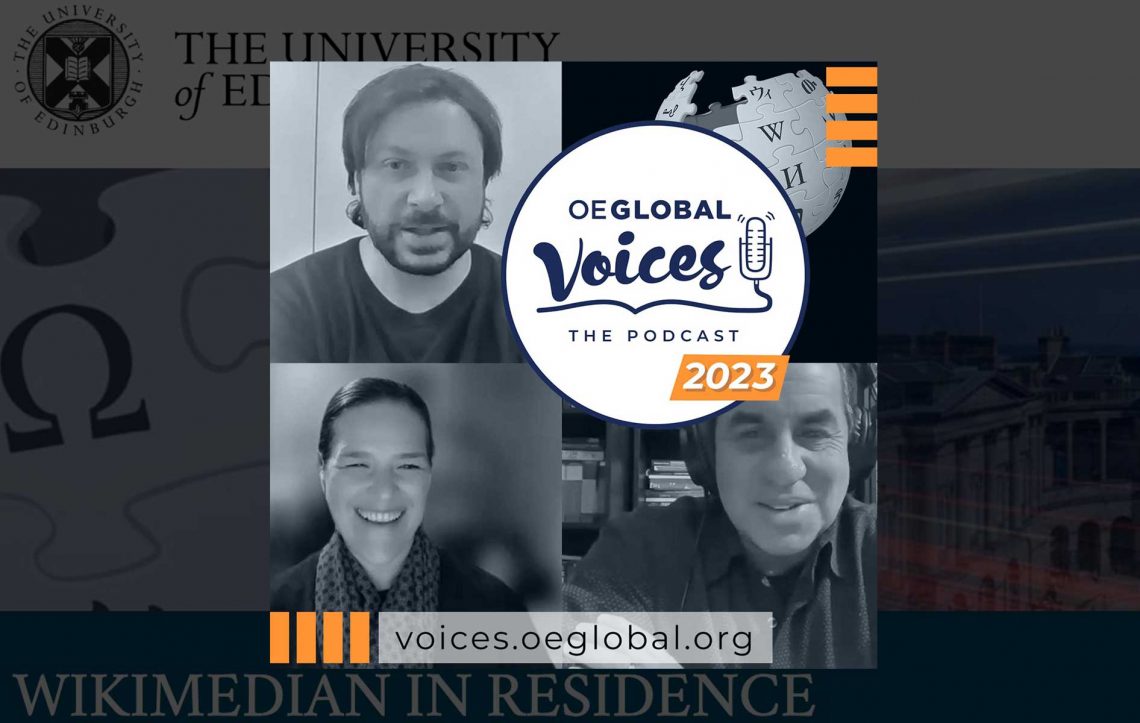
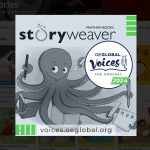
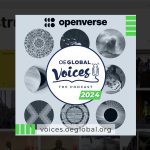
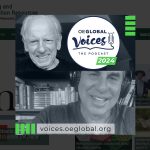
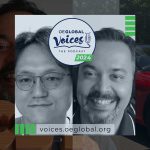
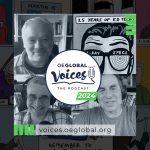
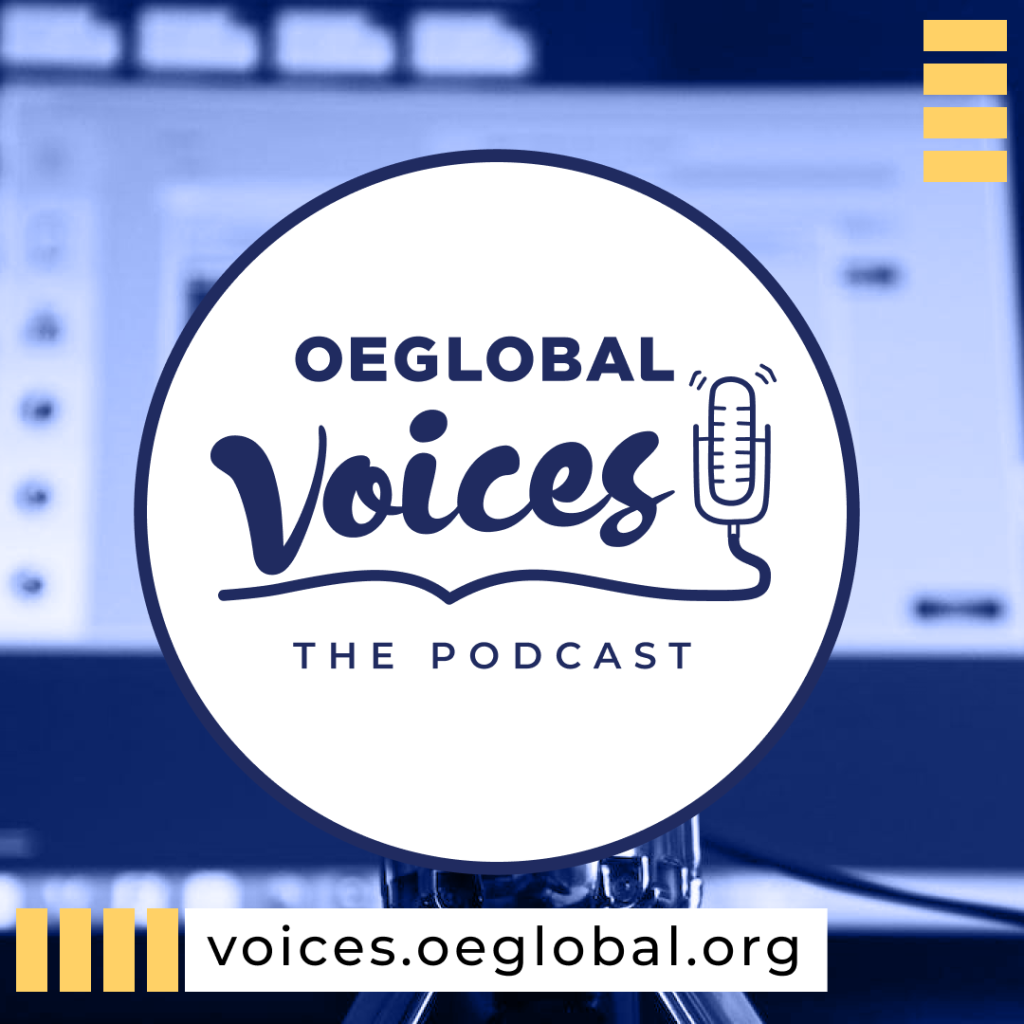

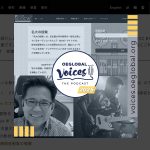
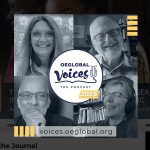
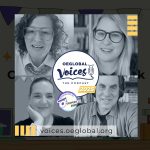
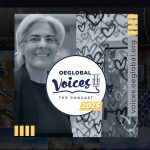
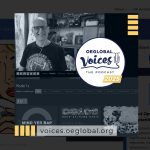
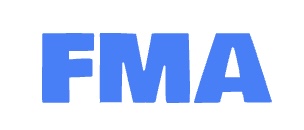
Start the discussion at OEG Connect